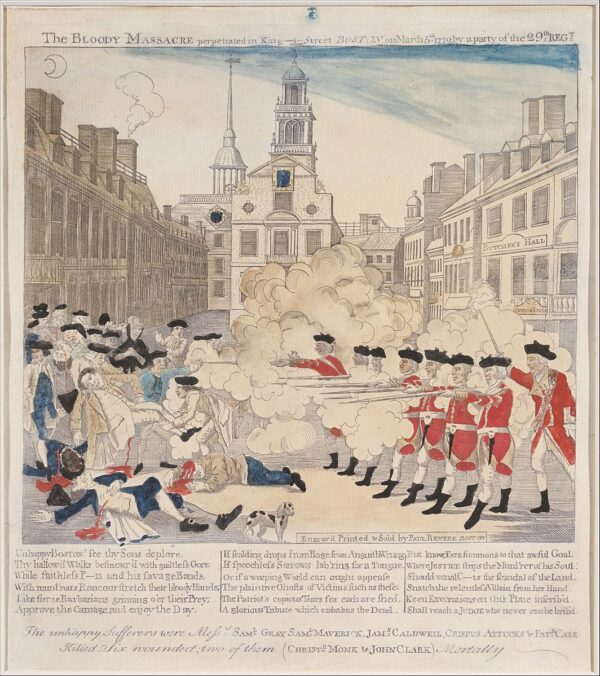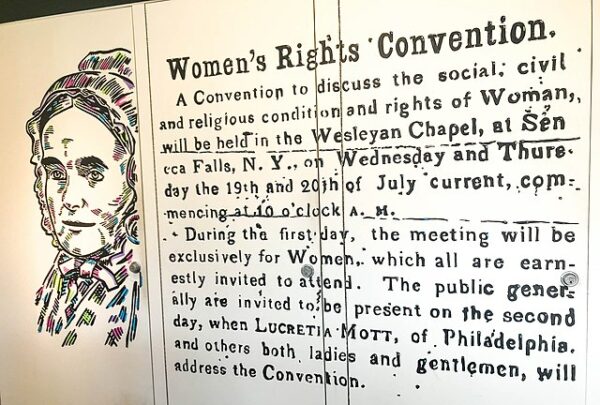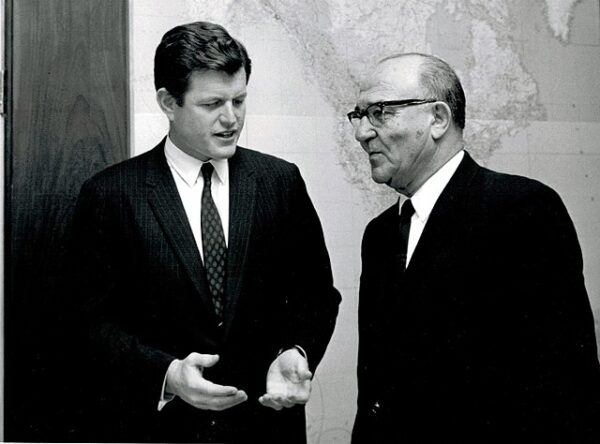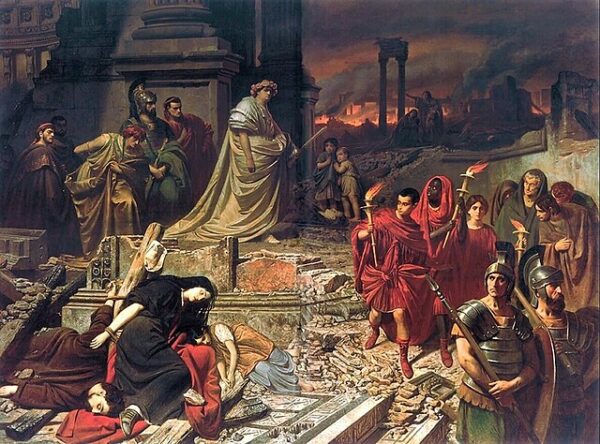The Boston Massacre, a pivotal event in pre-revolutionary America, unfolded on the evening of March 5, 1770. Tensions between American colonists and British soldiers had been escalating for years, fueled by issues such as taxation without representation and the presence of British troops in colonial cities.
On that fateful night, a confrontation erupted between a group of colonists and British soldiers near the Customs House in Boston. The soldiers, stationed there to enforce British tax laws, faced hostility from the angry crowd. The situation escalated, and in the chaos, shots were fired. Five colonists, including Crispus Attucks, lost their lives.
The incident became a symbol of British oppression and was seized upon by colonial propagandists to further stoke anti-British sentiments. Paul Revere’s famous engraving, depicting British soldiers firing on unarmed colonists, became a powerful and widely circulated image, contributing to the colonists’ growing discontent.
The subsequent trial heightened tensions further. John Adams, who would later become the second President of the United States, defended the British soldiers in court, arguing for a fair trial despite the prevailing anti-British sentiment. Two soldiers were found guilty of manslaughter and were branded on the thumb, avoiding the death penalty.
The Boston Massacre, although relatively small in scale compared to later events, served as a catalyst for revolutionary fervor. It galvanized colonial resistance and fueled the flames of discontent that would eventually lead to the American Revolution.
In the aftermath, British authorities sought to ease tensions by repealing some of the Townshend Acts, which had imposed taxes on various goods. However, the damage was done, and the incident became a rallying cry for those advocating independence.
The massacre’s impact resonated beyond Boston, influencing the broader colonial perspective. It fueled a sense of unity among the thirteen colonies, as they began to recognize a shared struggle against British oppression. The Boston Massacre is often considered one of the early sparks that ignited the flame of American independence.






